'We Don't Compete with Amazon'
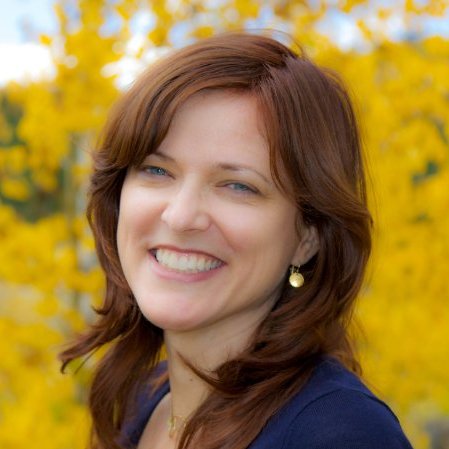 "I say we don't compete with Amazon because we don't. I can't compete on price. And they can't compete with me on the things that we offer."
"I say we don't compete with Amazon because we don't. I can't compete on price. And they can't compete with me on the things that we offer."
 "I say we don't compete with Amazon because we don't. I can't compete on price. And they can't compete with me on the things that we offer."
"I say we don't compete with Amazon because we don't. I can't compete on price. And they can't compete with me on the things that we offer."
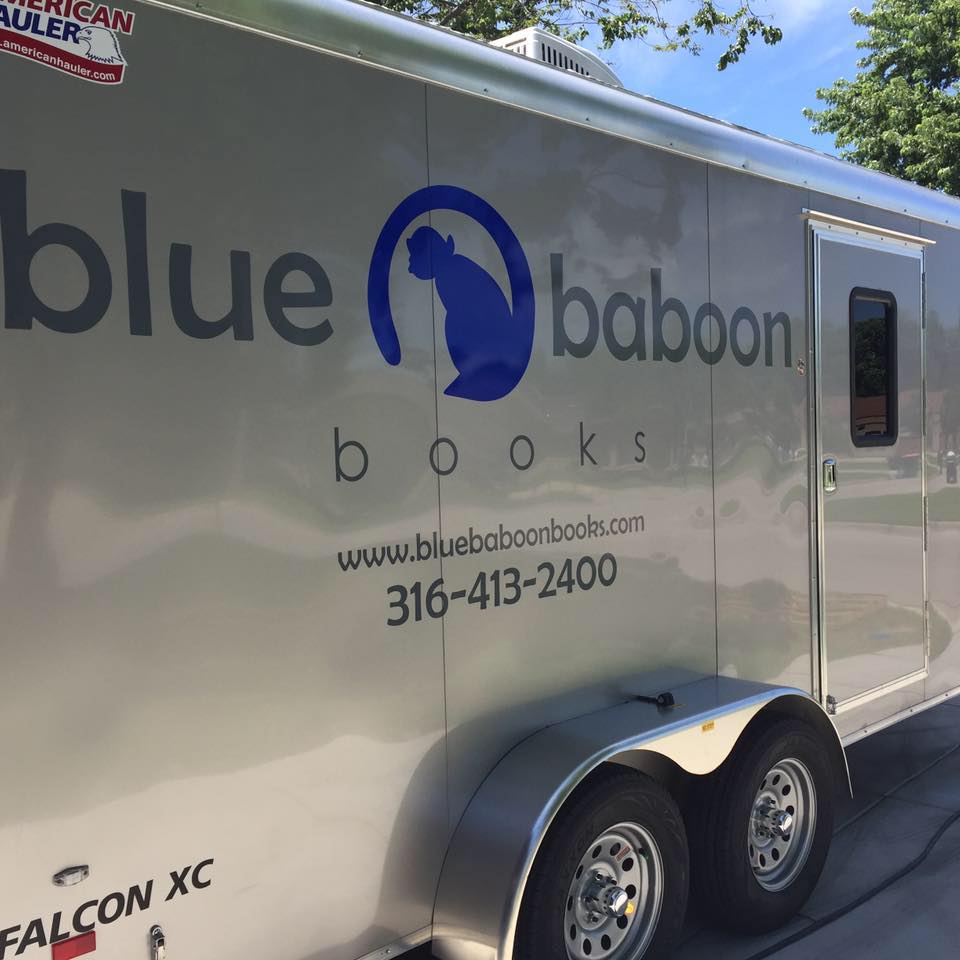
Blue Baboon Books, Wichita, Kan., which has been a mobile children's and YA bookstore for the past year, is opening a pop-up store that may became permanent, according to the Wichita Eagle.
The 1,700-square-foot pop-up store will be in NewMarket Square. Owner Sara Ornelas told the paper, "While it is still a pop-up store, my husband and I... are approaching it like it's going to be a permanent location, because we want it to work."
Ornelas will continue to use the custom-built cargo trailer that holds some 2,000 books for outreach to schools. "I'm really glad I did start smaller, because I learned a lot about marketing... and I made a lot of contacts," she said, adding that had she started bigger, "The mistakes would have been more expensive."
The pop-up Blue Baboon will carry more items than the mobile version, offering gift and stationery products and adult titles in addition to children's and YA books.
Ornelas aims to open by July 27, in time for Harry Potter's birthday.
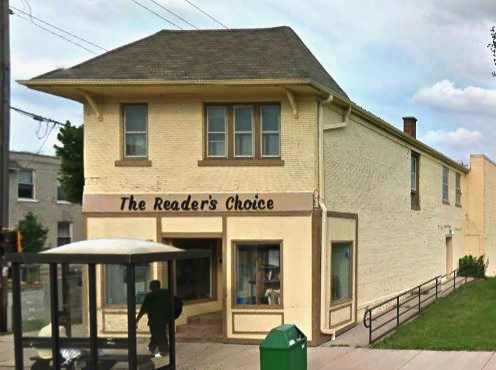
Owner Carla Allison, who is 74 and founded the store 28 years ago, is retiring, ready to "sit down and do nothing" for a time, she told the newspaper.
Near the end of last week, ringing up customers, fielding questions and greeting old friends, she said, "It has been a bit of work--more than a bit of work. But I'm here. I have been here when I was supposed to be here. So to see the community come back on this last day and express gratitude is surprising to me. It's very heartfelt."
The store specialized in books by African-American authors--99% of the stock, according to Allison, who said, "As Toni Morrison would say, they write because they have something to say. They write because they can say that something in a way that connects to a particular audience."
The store held poetry readings and author discussions. Allison also worked on literacy programs in Milwaukee, and urged the city to improve its efforts in this area, saying, "It involves parents. It involves politicians. The Common Council. It involves all of those folks who would like to call themselves, who imagine themselves, as leaders. If leaders are readers, why don't we know that?"
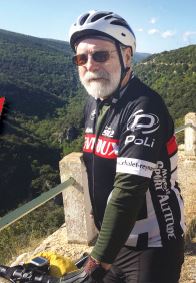 |
|
| Chuck Robinson | |
Chuck Robinson, co-founder of Village Books & Paper Dreams, Bellingham and Lynden, Wash., plans later this year to continue the cross-country bike ride that he began in 2015 and had to end after several dogs attacked him and he crashed in North Dakota.
On that earlier trip, Chuck was riding 2,400 miles from his home in Bellingham to his hometown of Galva, Ill., for his 50th high school reunion--and had ridden for 37 days and nearly 1,400 miles. It was also a fundraising ride, which raised almost $30,000 for the Book Industry Charitable Foundation (Binc), Whatcom Community Foundation and the Galva Foundation for Educational Enrichment.
On September 1, he will resume riding his bicycle from the spot in North Dakota where his first trip ended. This time he plans to ride to Bar Harbor, Maine, some 2,000 miles, and will again raise money--for Binc, the Whatcom Community Foundation and Whatcom Community College. He's personally pledging $1 a mile to each organization. Others are welcome to participate both by riding with Chuck and pledging, too. More information about pledging will come later this month.
Spencer Johnson, "who left behind a medical career to write short books about life and business, including Who Moved My Cheese?--a parable about embracing change that has sold 28 million copies worldwide," died July 3, the New York Times reported. He was 78. Published in 1998, Who Moved My Cheese? "became a publishing phenomenon and a workplace manual that preached how flexibility in the face of changing times will reward people."
"Spencer built a fable that helps people deal with change in a really accessible way," said Ivan Held, president of G.P. Putnam's Sons, which published the book.
Prior to his mega-bestseller, which has been translated into 44 languages, Johnson and business consultant Ken Blanchard collaborated on the extremely popular book The One Minute Manager (1982). "He wrote children's stories, and I made a point of telling stories while doing leadership training," Blanchard said. "I was already telling a story about a manager who wouldn't make decisions, and talking about goals. So we decided to do a story about a man looking for an effective manager."
A bestselling author for more than 30 years, Johnson "was not very interested in the spotlight," said Adrian Zackheim, president and publisher of Penguin Portfolio, who edited Johnson's book The Precious Present (1984) for Doubleday. "He was interested in writing his books and having an impact without saying much beyond them."
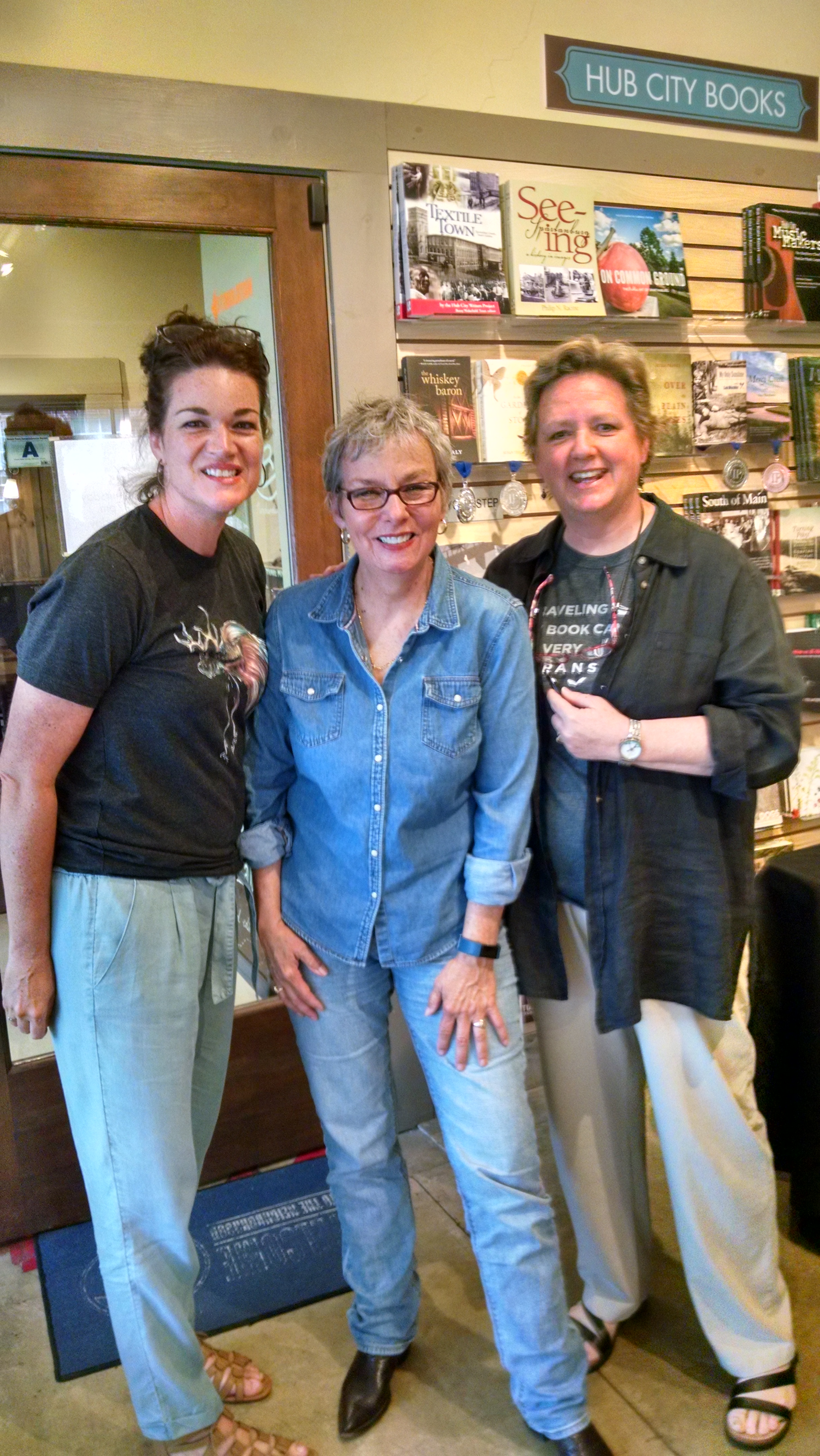 When author Susan Rivers was touring earlier this year for her novel The Second Mrs. Hockaday (Algonquin) she always seemed to be one stop ahead of or behind Bren McClain, on tour with her novel One Good Mama Bone (Story River Books). The two finally met up recently at Hub City Bookshop in Spartanburg, S.C., where McClain was doing a reading with J.C. Sasser, author of Gradle Bird (Koehler Books). Pictured: (l.-r.) J.C. Sasser, Bren McClain, Susan Rivers
When author Susan Rivers was touring earlier this year for her novel The Second Mrs. Hockaday (Algonquin) she always seemed to be one stop ahead of or behind Bren McClain, on tour with her novel One Good Mama Bone (Story River Books). The two finally met up recently at Hub City Bookshop in Spartanburg, S.C., where McClain was doing a reading with J.C. Sasser, author of Gradle Bird (Koehler Books). Pictured: (l.-r.) J.C. Sasser, Bren McClain, Susan Rivers
WAMU, the American University NPR station in Washington, D.C., surveyed independent bookstores in the capital, where "at least five small, independent bookstores have opened locally in the last two years, with more on the way." In addition, "big indie players Politics and Prose, Kramerbooks and Busboys and Poets have either expanded or are planning expansions, and innovative ventures such as mobile shop Duende District are remaking what it means to be a bookstore."
Among comments and observations:
Concerning the decline of big-box bookstores, Laurie Gillman, owner of East City Bookshop in Capitol Hill, said: "That just opened up the landscape for independent bookstores. People realized, 'Oh, wait! I need a place to go and look at the books. And touch the books. And talk to people about the books.' So that really opened up the market."
Bradley Graham, co-owner of Politics and Prose: "When we got in the business, back in 2011, there were all these dire predictions that e-books were going to eliminate physical books within five or 10 years. Nobody's predicting that anymore. In fact, some of the most avid users of e-readers remain among the most avid buyers of physicals."
Angela Maria Spring about her new bookselling business Duende District: "I really wanted to create a store where [people of color] could shine."
Andy Shallal, owner of restaurant and bookstore shops Busboys and Poets, which will soon offer food and book delivery: "When somebody calls and orders a burger, they're able to get a book of their choice that's available in our inventory."
Anna Thorn, a book strategist at Busboys and Poets: "We're offering a community space, events and partnership with your community, as well as excellent curation [from] expert booksellers. It's something that’s much more personal, much more experiential and certainly much more tied to your local community."
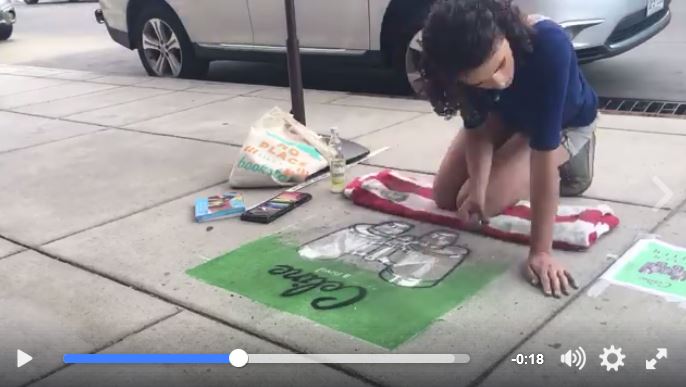
Ilene Schreider has joined Sourcebooks as senior manager of specialty retail. Previously she was assistant director, specialty sales at Time, Inc. Books.

Today:
Today Show: Daniel Silva, author of House of Spies (Harper, $28.99, 9780062354341).
Last Call with Carson Daly repeat: Jay Chandrasekhar, author of Mustache Shenanigans: Making Super Troopers and Other Adventures in Comedy (Dutton, $27, 9781101985236).
Tomorrow:
Live with Kelly and Ryan: Chris Colfer, author of The Land of Stories: Worlds Collide (Little, Brown, $19.99, 9780316355896). He will also be on Good Morning America.
Daily Show: David O. Brown, co-author of Called to Rise: A Life in Faithful Service to the Community That Made Me (Ballantine, $28, 9781524796549).
Ordeal by Innocence, the "first Agatha Christie adaptation under a 2016 deal struck between BBC One and Agatha Christie Productions for seven dramas based on the author's works, has announced cast members," Deadline reported. Filming will begin in Scotland this month for the three-part mini starring Bill Nighy, Catherine Keener and Matthew Goode.
The cast also includes Eleanor Tomlinson (Poldark), Ed Westwick (Gossip Girl), Anthony Boyle (Harry Potter and the Cursed Child), Luke Treadaway (Fortitude), Morven Christie (The A Word), Crystal Clarke (Star Wars: The Force Awakens), Ella Purnell (Miss Peregrine's Home for Peculiar Children) and Alice Eve (Star Trek into Darkness).
Sandra Goldbacher (Victoria) is directing Ordeal by Innocence, which was adapted by Sarah Phelps (And Then There Were None, Witness for the Prosecution).
---
Matt Nicholas's Rebel Maverick Productions has acquired the rights to Nightmare in Detroit: A Rebellion and Its Victims by Burleigh Hines and Van Gordon Sauter to develop as a TV mini or event series, Deadline reported. Nicholas is executive producing with the company's new head of development & production, Ashley Anguline. Rebel Maverick will shop the project to networks and streaming services.
A shortlist has been unveiled for this year's Diagram Prize for Oddest Book Title. The winner will be decided by public vote through the Bookseller's website, which noted: "As usual, the winning author and publisher win nothing (save the adulation of millions), but the nominator will be sent a passable bottle of claret." Voting closes July 21 and the winner is announced July 28. The shortlisted titles are:
Nipples on My Knee by Graham & Debra Robertson
An Ape's View of Evolution by Peter Andrews
Love Your Lady Landscape by Lisa Lister
Renniks Australian Pre-Decimal & Decimal Coin Errors: The Premier Guide for Australian Pre-Decimal & Decimal Coin Errors, edited by Ian McConnelly
The Commuter Pig-Keeper by Michaela Giles
Life in Code: A Personal History of Technology by Ellen Ullman (MCD/Farrar, Straus and Giroux, $27 hardcover, 320p., 9780374534516, August 8, 2017)
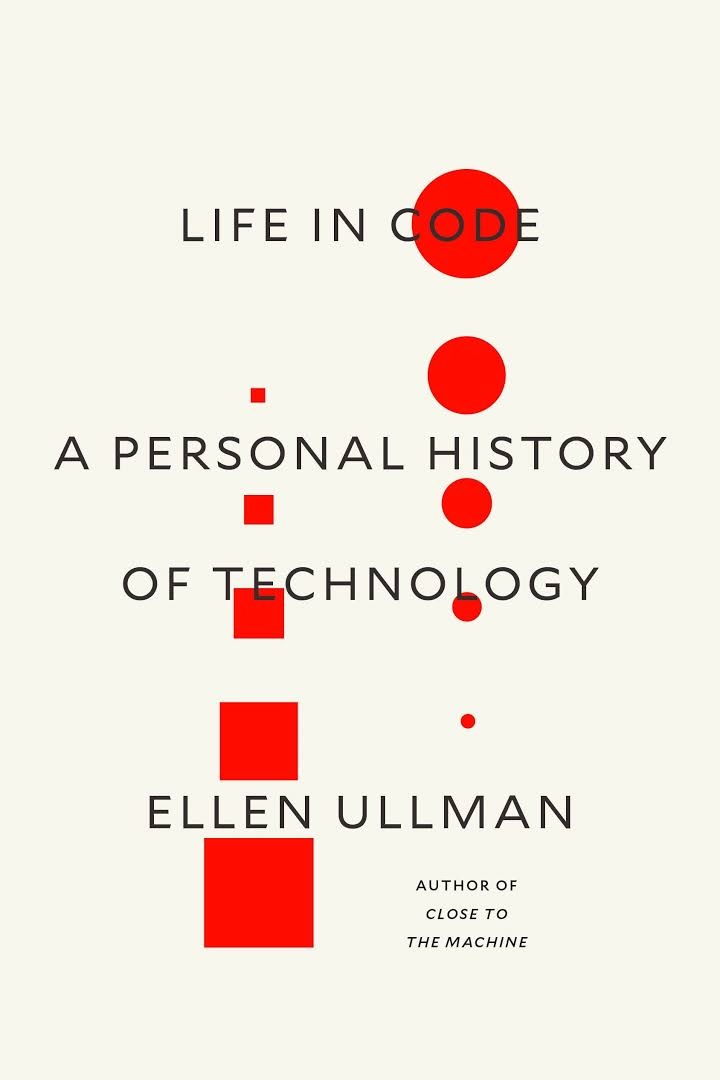 With a Cornell undergraduate degree in English and a long career in computer coding, Ellen Ullman has written frequently and earnestly about the intersection of digital technology with the social, political and philosophical fabric of contemporary life (the memoir Close to the Machine and novel The Bug). Life in Code collects nine previous magazine pieces and eight new reflections on the logical discipline behind writing the algorithms that more and more rule the world--and the risky implications of failure that these sophisticated applications represent. Her 1999 article "What We Were Afraid of As We Feared Y2K" goes to the heart of this quandary. While the public was in panic mode (she notes, "Survivalism was going around like the flu"), those who were rewriting the background calendaring software had hands-on grounds for concern about this "epidemic of infection: the whole massively interlinked organism succumbing to sepsis." Ullman even hosts a New Year's Eve party on her San Francisco rooftop to watch the century roll across the globe. No airplanes fall from the sky and she observes that few recognized "what peril we were under and what my colleagues had done to keep us from it." They did what programmers do: "Fix. Test. Fix. Test. Make it work."
With a Cornell undergraduate degree in English and a long career in computer coding, Ellen Ullman has written frequently and earnestly about the intersection of digital technology with the social, political and philosophical fabric of contemporary life (the memoir Close to the Machine and novel The Bug). Life in Code collects nine previous magazine pieces and eight new reflections on the logical discipline behind writing the algorithms that more and more rule the world--and the risky implications of failure that these sophisticated applications represent. Her 1999 article "What We Were Afraid of As We Feared Y2K" goes to the heart of this quandary. While the public was in panic mode (she notes, "Survivalism was going around like the flu"), those who were rewriting the background calendaring software had hands-on grounds for concern about this "epidemic of infection: the whole massively interlinked organism succumbing to sepsis." Ullman even hosts a New Year's Eve party on her San Francisco rooftop to watch the century roll across the globe. No airplanes fall from the sky and she observes that few recognized "what peril we were under and what my colleagues had done to keep us from it." They did what programmers do: "Fix. Test. Fix. Test. Make it work."
Covering the years of rapidly evolving technology between 1994 and today, Life in Code hits all the familiar touchstones of the digital juggernaut. It also clarifies some of the jargon, acronyms and programming language idiosyncrasies of the tech world. On a personal note, Ullman laments the gentrification of her once gritty SOMA (South of Market) San Francisco neighborhood as AT&T tears up streets to lay fiber optic cable for the tech start-ups flooding in--the "needle park for junkies... now a place to eat and picnic and talk on cell phones." She parties and gossips with Google founders Sergey Brin and Larry Page ("His intelligence is... at the far, far right end of the bell curve"). At an Internet security conference she runs into a political buzz saw on cryptography, with techno-libertarians and crypto-anarchists lining up against legislative activists. Ullman shares her bewilderment at the piles of money venture funds throw at tech start-ups, where the founders and money guys get stock rich but the companies have no profits to sustain the business or its programmers. These poor souls are crammed into former SOMA warehouses "side by side, shoulder to shoulder.... Software assembly line, stale air: sweatshops are the new garage."
An activist, Ullman wraps up her chronicle of two decades programming with a comment on the rise of President Trump through the now-ubiquitous disintermediation of the Internet. With Twitter blasts of this and that--either true or false--he bypassed the traditional news gatherers and arbiters of accuracy to send messages straight to his people. She concludes that this is where her years of coding have taken us: "The intermediaries were useless: you could trust only websites; go directly to the internet." It remains to be seen whether this is good or bad, but Ullman's reflections on how we got here are canny, personal, enlightening and pleasantly diverting. --Bruce Jacobs, founding partner, Watermark Books & Cafe, Wichita, Kan.
Shelf Talker: With personal anecdotes, clear exposition and a keen sense of the big picture, lifelong computer coder Ellen Ullman describes the rise of the technology that now permeates our lives--for better or worse.
In Friday's issue of Shelf Awareness, Geo Ong, manager of Greenlight Bookstore in Prospect Lefferts Gardens, Brooklyn, N.Y., was misidentified in Robert Gray's column on handselling graphic novels. The correction has been made in the online edition. Apologies for the error.